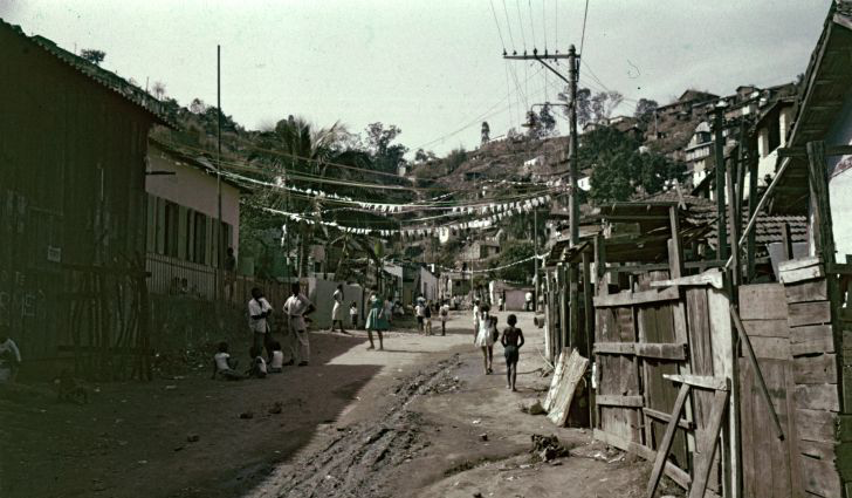![]()
Henri Ballot, Morro de Mangueira (color photograph, 1963). Collection of Instituto Moreira Salles, Rio de Janeiro.
From the Favela to the Tenement: Gordon Parks, Henri Ballot, and the Recoding of American Poverty
15th Brazilian Studies Association Congress (Austin, TX)
March 26-29, 2020*
Conference Presentation by Ian Erickson-Kery (Duke)
*the paper was accepted and prepared but never given due to the onslaught of COVID-19 and cancellation of the conference
The 2018-19 traveling exhibition The Flávio Story revisits Life magazine’s 1961 story on a Rio de Janeiro favela—a significant moment in photographer Gordon Parks’s career—and the polemical response of the Brazilian magazine O Cruzeiro, which sent photographer Henri Ballot to New York to document living conditions in a tenement, or in the magazine’s words, a “favela sem samba e sem sol.” The exhibition rightly foregrounds Life’s instrumental role in propagating U.S. economic interests in Latin America under the Alliance for Progress, as well as O Cruzeiro’s corresponding investment in an image of a modernizing Brazil destined for first-world prosperity. I argue, however, that Parks’s and Ballot’s photographs evince conscious challenges to the very discourses under which they were mobilized by their publishers. Each photographer grappled with the vexing problem of representing poverty, engaging critically with the implications of the social realist tradition in relation to distinct urban, socio-political and racial contexts. These efforts, also present in lesser-known series by Parks (in a Washington, D.C. shantytown) and Ballot (in a different Rio favela), demonstrate each photographer’s concern with the problem of marginality at a historical juncture in which social scientists and urban planners across the hemisphere intensely debated the persistence of poverty amidst rapid modernization. Considered alongside these debates, Parks’s and Ballot’s photographs shed light not only on brash Cold War-era polemics, but also on the gradual re-signification of poverty in a period of pronounced urban, economic, and ideological transition throughout the Americas.

